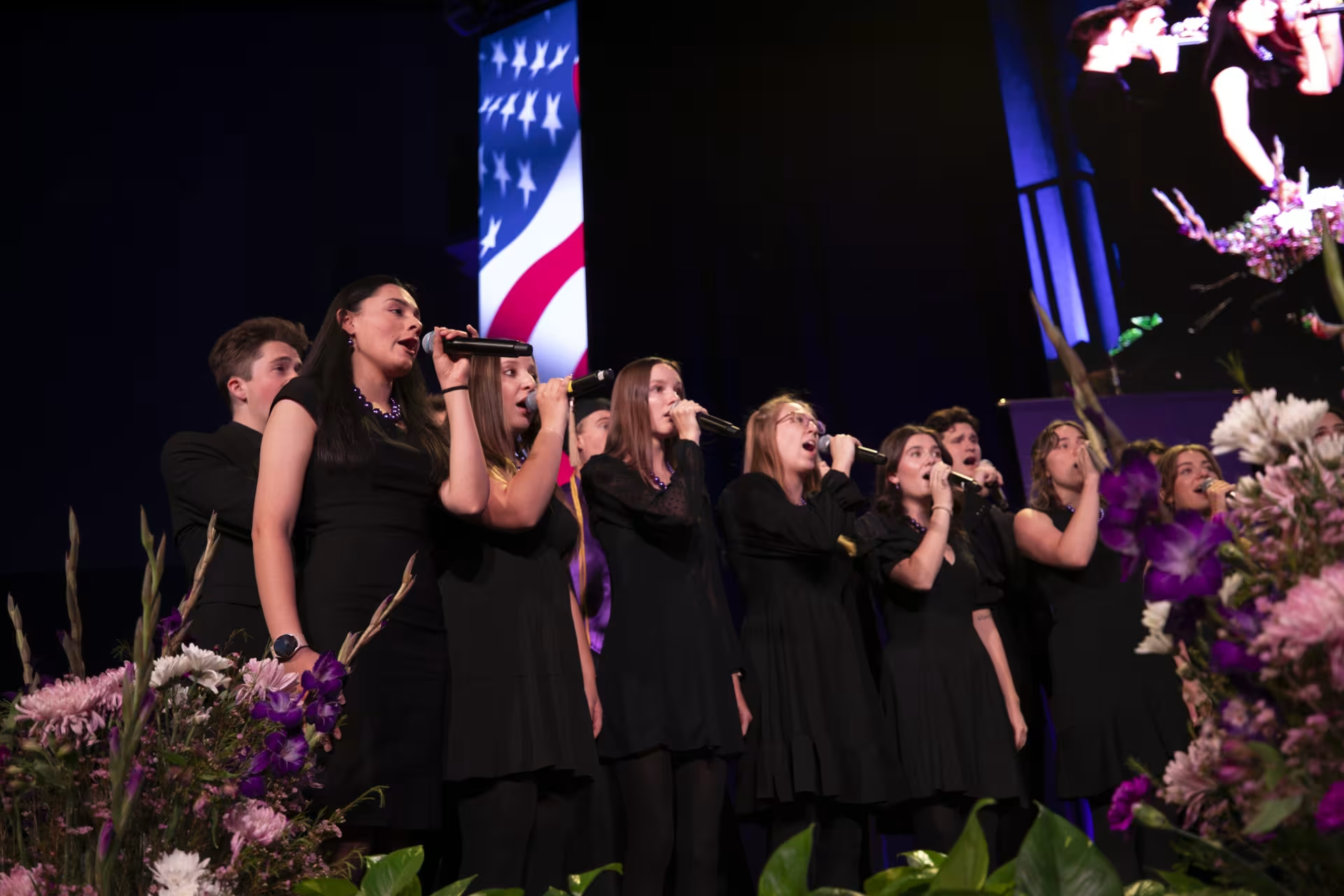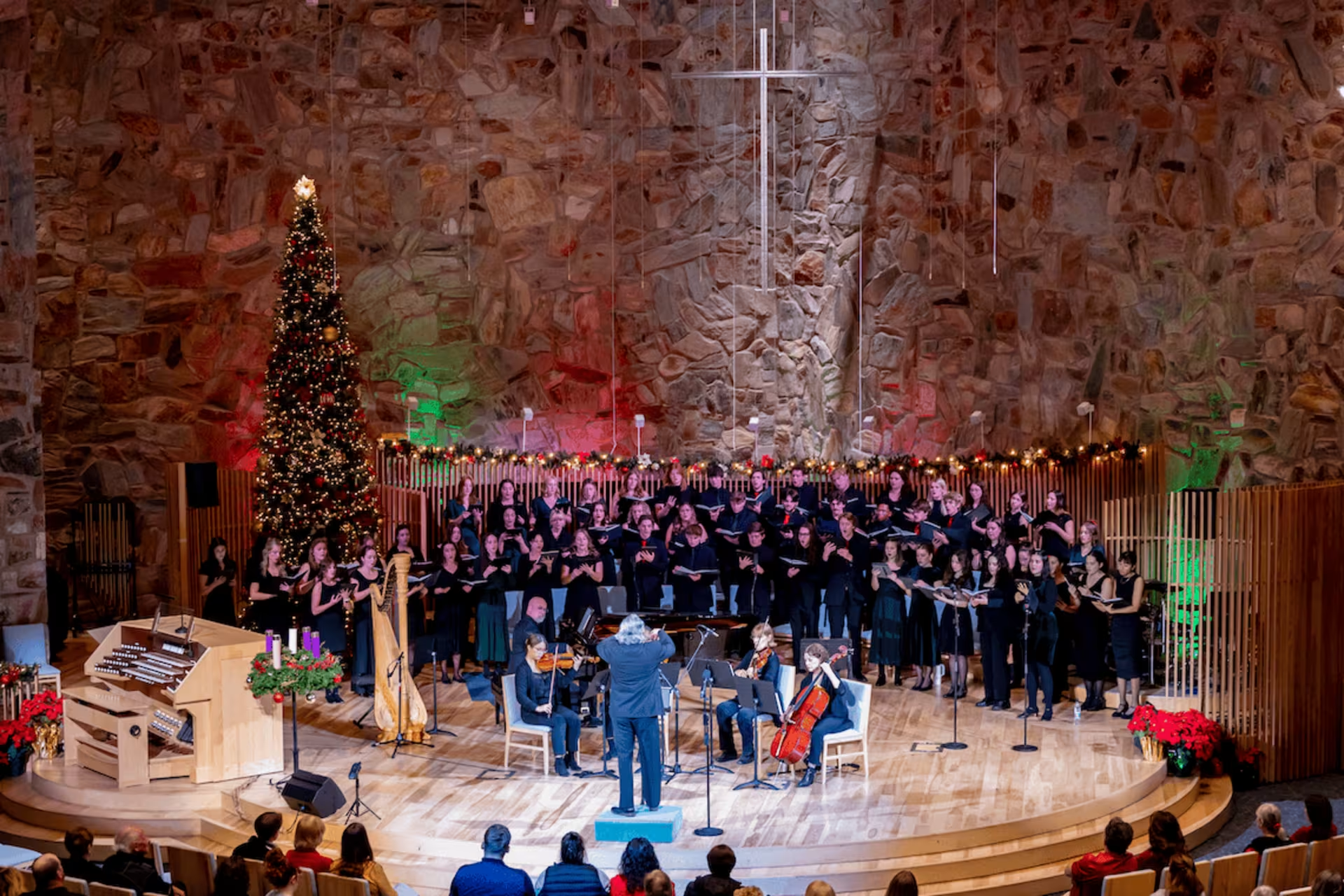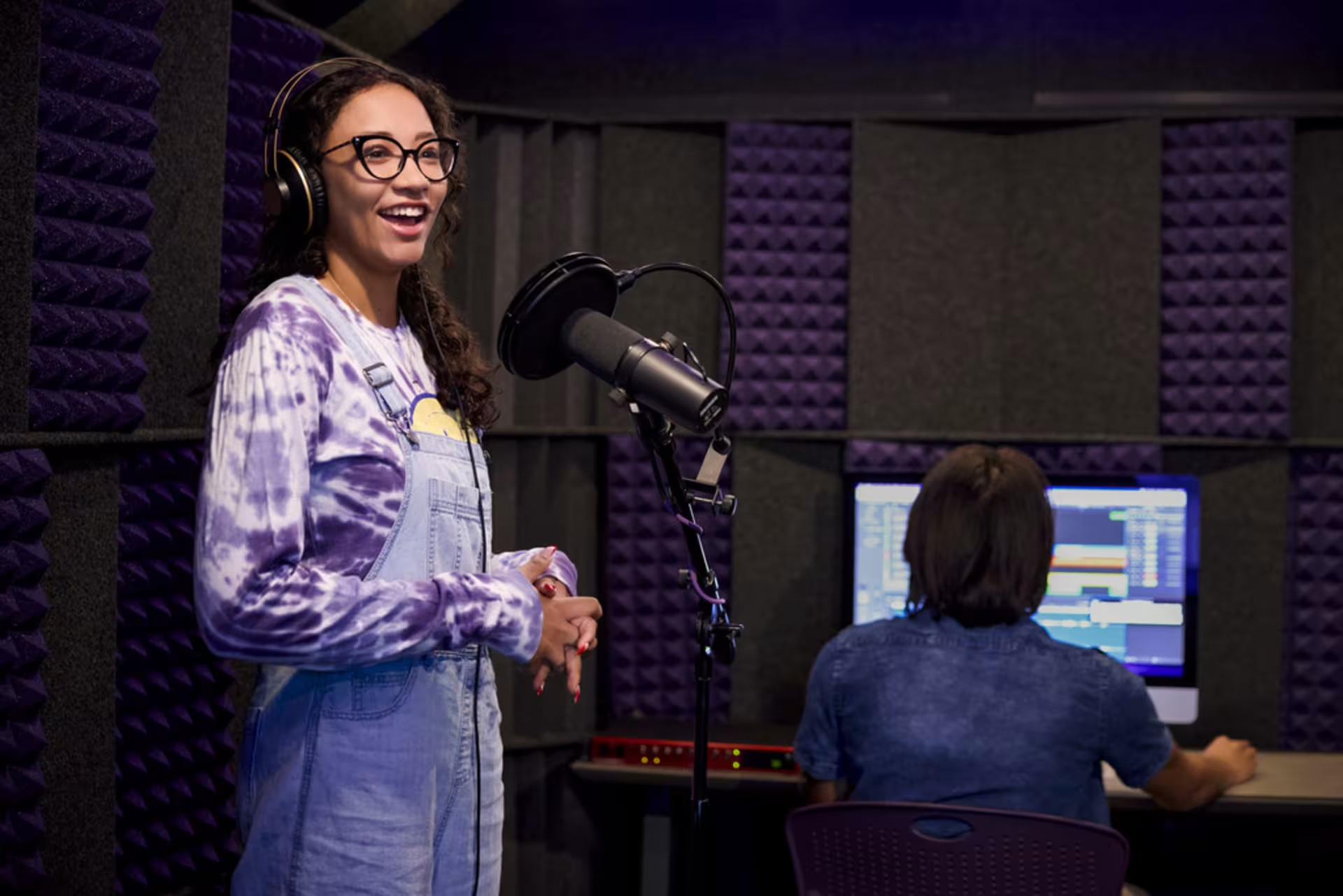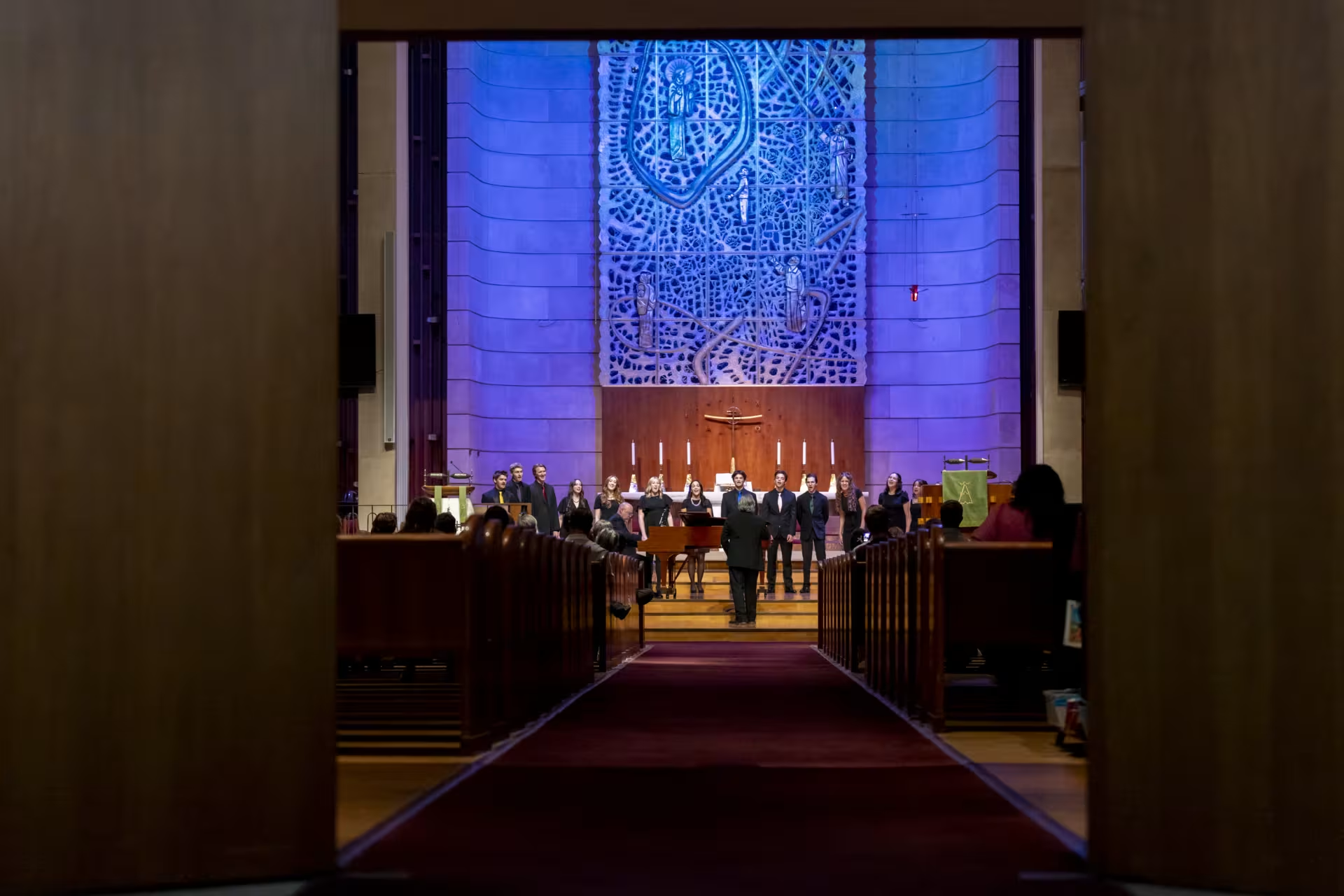
Choral Voice Music Education Degree
Study the Universal Language of Music
Music is a universal language that transcends boundaries and borders, and music education is a vital component in a well-rounded curriculum. If you aspire to share your love of music with future students and to inspire them to strive for new heights, a choral music education degree can help you pursue your goal.
The Bachelor of Arts in Music Education: Choral Voice degree program at Grand Canyon University blends theory and instruction with hands-on, immersive practices. You will develop your own creative talents while you learn how to educate the next generation.

Campus: $8,250 per semester [More Info]
Up to 90 credits, only 84 can be lower division
Credits: Fill out the Lopes Eval to find out what will transfer
Admission Requirements (Bachelor's)
- 16+ years old
- High School Graduate
- 3.0+ Unweighted GPA
OR 2.5+ Unweighted GPA and
- ACT: 19
- SAT: 1000*
Admission requirements may differ based on degree level, program and modality, or transfer status. Some programs of study may require a higher GPA and/or other qualifying criteria for admission. Please review full admission and program requirements in the University Policy Handbook.
*Math and reading only on a 1600 point scale (test date after 3/1/2016). SAT score of 1380 required for 2400 point scale (test date before 3/1/2016).
Earn Your Choral Voice Music Education Degree From GCU
Offered by the College of Arts and Media, this choral music education degree program for aspiring choral educators includes an intensive, skill-oriented curriculum that can empower you to combine passion with purpose. You will have the opportunity to explore advanced choral and voice techniques, examine the latest in music and classroom technology, be taught how to use assessment strategies and dive into educational psychology theories.
The GCU campus allows you the opportunity to learn beyond the classroom. In this degree program, you will regularly participate in choral groups and are encouraged to participate in the Ethington Theatre Series.

Program Requirements
The BA in music education at GCU is aligned with the standards of the National Association of Schools of Music (NASM) and the Interstate New Teacher Assessment and Support Consortium (InTASC). Students pursuing teacher licensure are required to complete practicum hours, state exams and a student teaching experience, in order to obtain an institutional recommendation from GCU.
Auditions, while not required for acceptance, are required for scholarships. Performance scholarships are available on a first-come, first-served basis and applicants are encouraged to audition early.
Learn the Foundations of Teaching and Choral Voice Techniques in Music
Students who graduate from this choral music education degree program are taught the knowledge and skills they need to instruct students in K-12 music settings. While becoming competent with instructional and assessment methods, you will have opportunities to develop your own creative talent and work toward becoming a confident performer. Opportunities for public and solo recitals are embedded throughout the curriculum, along with required private instruction for a rigorous, immersive experience.
In choral music education courses, you will examine the following topic areas:
In addition, all students are required to complete an eight-week student teaching experience in an elementary classroom and an eight-week student teaching experience in a secondary classroom.
Pursue a Career in Music Education as a Choral Teacher
Students enrolled in music education may benefit from better memory retention, language, reasoning and emotional development.1 As an aspiring choral educator, you may one day share your love of music with others and inspire your students to work toward lifelong personal and professional success.
Graduates with a BA in Music Education – Choral: Voice may be prepared to pursue a career as a certified K-12 music teacher in public or private schools. Some graduates may choose to open their own private music studios or music instruction businesses.
This choral music education degree leads to initial teacher licensure. You are expected to understand the specific licensure requirements for the state in which you plan to teach.
Median annual wage for high school teachers as of May 2024(See disclaimer 2)
BA in Music Education: Choral Voice Degree FAQs
Explore frequently asked questions about the BA in choral music education to gain insights into the program's specifics and expectations. Whether you're considering enrollment or already part of the program, these comprehensive answers can guide you on your academic journey in a music education degree.
Is the choral music education degree offered online?
Is a music education degree worth it?
Is a music education degree hard?
What kinds of careers can you have in choral music education?
What can I do with a music education degree besides teach?
Program Curriculum
General Education Requirements
Required General Education Courses
Core Courses

Begin your path toward a music education career with GCU. Complete the form to connect with a university counselor.
If you are seeking licensure/certification, please refer to the "Accreditation and Compliance/State Disclosures” link for the specific program of interest’s website for your location and/or employment state’s licensure requirements, per 34 CFR 668.14(b)32 and 668.43(c).
- Dege, F., Wehrum, S., Stark, R., and Schwarzer, G. (2010, July 27). The Influence of Two Years of School Music Training in Secondary School on Visual and Auditory Memory. Taylor & Francis Online. Retrieved on Jan. 5, 2024.
- The earnings referenced were reported by the U.S. Bureau of Labor Statistics (BLS), High School Teachers, as of May 2024, retrieved on Aug. 4, 2024. Due to COVID-19, data from 2020 to 2024 may be atypical compared to prior years. BLS calculates the median using salaries of workers nationwide with varying levels of education and experience. It does not reflect the earnings of GCU graduates as high school teachers, nor does it reflect the earnings of workers in one city or region of the country or a typical entry-level salary. Median income is the statistical midpoint for the range of salaries in a specific occupation. It represents what you would earn if you were paid more money than half the workers in an occupation, and less than half the workers in an occupation. It may give you a basis to estimate what you might earn at some point if you enter this career. Grand Canyon University can make no guarantees on individual graduates’ salaries. Your employability will be determined by numerous factors over which GCU has no control, such as the employer the graduate chooses to apply to, the graduate’s experience level, individual characteristics, skills, etc. against a pool of candidates.
- U.S. Bureau of Labor Statistics. (2023, Sept. 6). High School Teachers. Occupational Outlook Handbook. Retrieved on Feb. 2, 2024.
- Indeed. (2022, Oct. 26). 10 Jobs In Music Education (With Duties and Salaries). Retrieved on Feb. 2, 2024.


